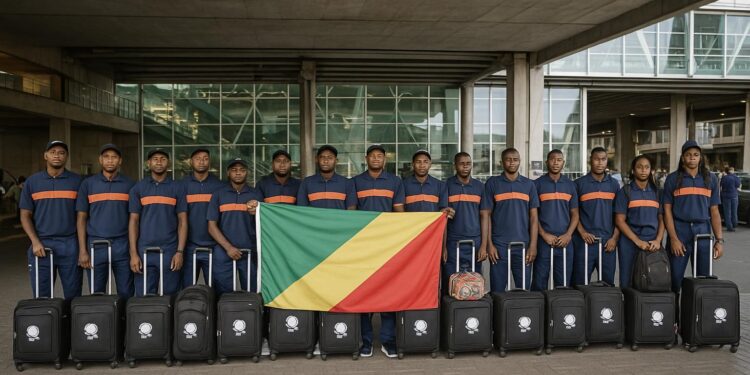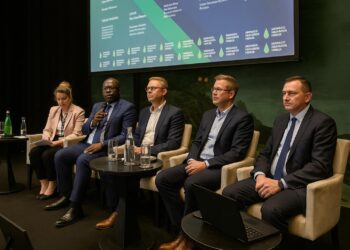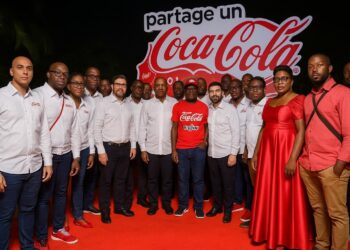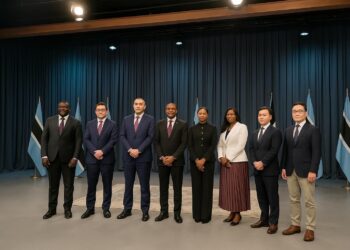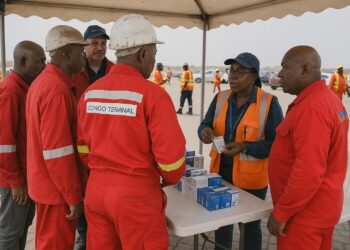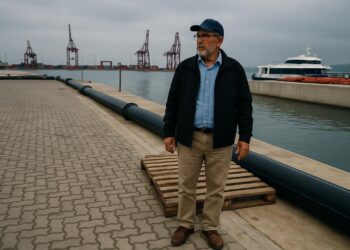SNPC talent drive gains momentum
On 5 September nineteen Congolese students stepped off a flight in Algiers, welcomed by officials from Sonatrach and university staff, marking the start of a five-year petroleum engineering programme fully financed by Société Nationale des Pétroles du Congo, SNPC.
The cohort, chosen after nationwide exams during the 2023-2024 recruitment campaigns, includes seven women, a proportion SNPC managers underline as evidence of their intention to broaden gender balance in a field still dominated by men across central Africa.
Public presentation of the group in Brazzaville on 17 September attracted parents, government representatives and executives who framed the initiative as a pillar of human-capital modernisation inside the state-owned oil company founded in 1998.
SNPC Chief Executive Maixent Raoul Ominga summarised the ambition succinctly, insisting the students would “carry the relay baton of operational excellence” at a time when Congo’s mature offshore fields need fresh technological solutions to sustain output.
Why Algeria’s Boumerdes campus matters
The Institut Algérien du Pétrole in Boumerdes, established in 1965, is widely regarded in the Maghreb for upstream technical training; its alumni are scattered across Sonatrach, TotalEnergies, Eni and ADNOC, giving the new Congolese intake exposure to a broader network.
According to Algerian media reports, the campus recently upgraded laboratories for drilling fluids, reservoir simulation and gas processing using Schlumberger software, features that SNPC’s own training centre in Pointe-Noire cannot yet replicate.
Faculty members cite a pedagogical mix of classroom theory, desert-field internships and refinery rotations at Skikda, an approach considered decisive for producing engineers able to move directly from academic benches to operating consoles.
Bilateral training exchanges between Brazzaville and Algiers date back to a 2018 memorandum of understanding on hydrocarbons cooperation, but this is the first batch enrolled under a dedicated multiyear scholarship window.
A guaranteed job pipeline at home
All students sign a return clause that obliges them to work for SNPC upon graduation, a mechanism designed to stop brain drain and to fill looming vacancies as senior engineers retire.
Congo’s Ministry of Hydrocarbons estimates that domestic upstream projects will require at least 250 additional engineers by 2030 as new operators such as Perenco, Chevron and Kosmos intensify activity in the offshore centre and Djéno terminals.
In-house absorption is already planned: SNPC’s human-resources plan 2025-2035 earmarks specialist roles in reservoir management, enhanced oil recovery and health-safety for the scholars, with salary scales aligned to BEAC regional benchmarks.
Maixent Raoul Ominga reassured parents that academic fees, accommodation and daily subsistence have been prepaid for the entire cycle, adding that “any candidate who meets the programme’s standards is automatically integrated, without additional tests”.
Funding model reflects wider CSR
SNPC finances the initiative through its Corporate Social Responsibility envelope, equivalent to one percent of annual turnover, audited by Deloitte Congo; the scholarship component represents roughly USD 1.2 million over five years, executives disclosed.
Observers note that the outlay remains modest relative to the company’s 2022 gross revenue of USD 4.5 billion, yet its reputational dividend is significant as international markets increasingly gauge national oil companies on ESG indicators.
By selecting candidates from public universities in Brazzaville and Pointe-Noire, SNPC also addresses domestic concerns about social mobility: several beneficiaries are first-generation tertiary students from regions outside the coastal oil enclaves.
The partnership with Sonatrach is reciprocal; Algerian technicians are expected in Congo next quarter to advise on pipeline integrity at the Nkossa field, reinforcing a South-South cooperation model encouraged by the African Petroleum Producers Organization.
Regional energy vision and next steps
Beyond Algeria, five additional Congolese students will attend the Azerbaijan State Oil and Industry University in Baku under a parallel arrangement, reflecting SNPC’s intention to diversify knowledge sources across OPEC and non-OPEC jurisdictions.
Negotiations are advancing with institutions in Malaysia and Canada, according to officials, although timelines remain indicative; the objective is to build a 100-engineer diaspora by 2035 capable of steering Congo toward value-added petrochemicals and gas-to-power schemes.
Analysts at Rystad Energy consider the policy prudent: “Localising expertise costs less than relying on expatriates, especially as mature assets need incremental brownfield work, not greenfield megaprojects,” their client note stated.
For now, the nineteen pioneers in Boumerdes embody a quiet but tangible message: Congo-Brazzaville’s hydrocarbon sector is betting on its youth, equipping them abroad so that tomorrow they can optimise production, revenues and national development at home.

































